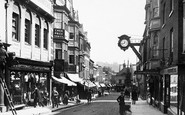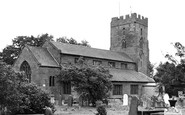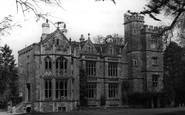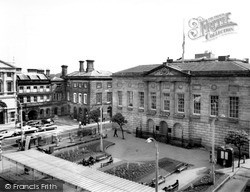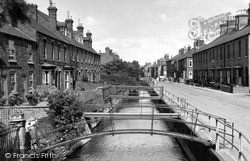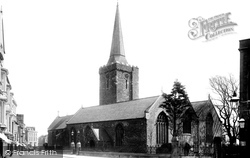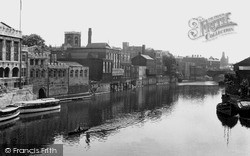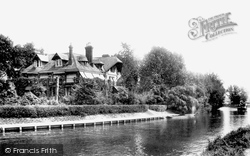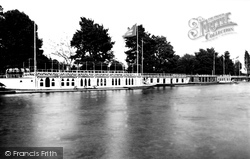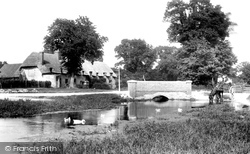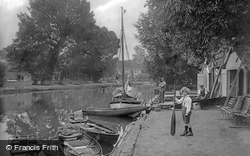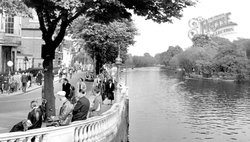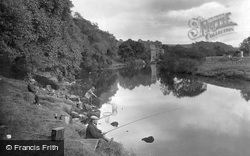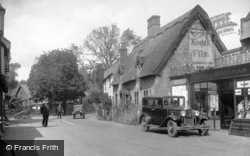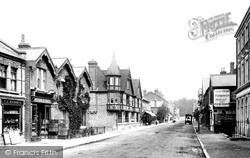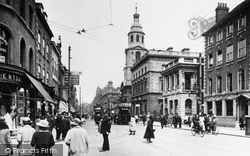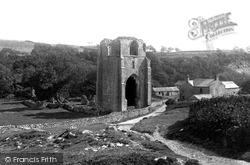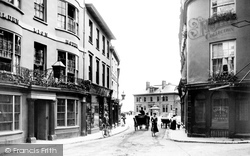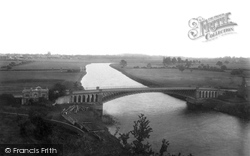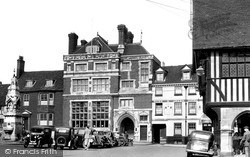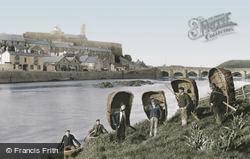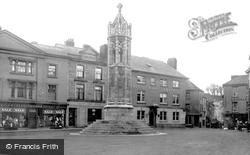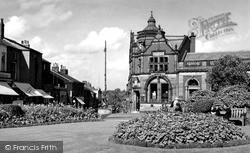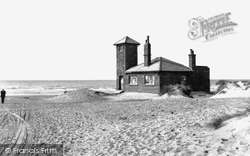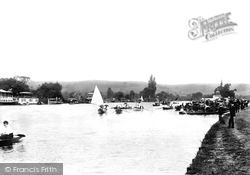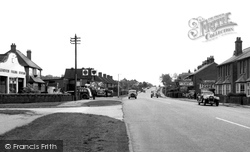Places
3 places found.
Those places high-lighted have photos. All locations may have maps, books and memories.
Photos
68 photos found. Showing results 221 to 68.
Maps
12 maps found.
Books
15 books found. Showing results 265 to 15.
Memories
7,562 memories found. Showing results 111 to 120.
Holidays In The 1950s
My parents and I used to stay in a bungalow owed by a Mr & Mrs Tidy and I was made to keep it tidy! I loved the sandy beach and remember playing deck tennis on the sand. Next door was a family with three girls, ...Read more
A memory of St Mary's Bay by
Whitethorn Morris At The Winchester May Fest 08
May 2008, and the city of Winchester hosted a festival of music and dance, with the streets closed to traffic and thronged with entertainers, market stalls and happy crowds. I was part of the band ...Read more
A memory of Winchester in 2008 by
Where Does The Time Go
This is the church where my 17 year old son was christened. This is also the church where I spent most of my childhood. From about the age of 10, my friends and I would go grave rubbing. We actually spent more time cleaning ...Read more
A memory of Farndon in 1980 by
My Memory Of Going To School In The Manor House
Chew Magna, High School - this was in fact the High School for Sacred Heart High School & Preparatory School, which I attended for 3 years. I was in my first year senior's when the high school ...Read more
A memory of Chew Magna in 1983 by
Bus Shelter
Many is the time I have spent in that bus shelter, on a winters night, freezing, waiting for an Eastern National bus or a Campbell’s Flyer [1/2 penny cheaper in old money]. Having been to the Kingsway cinema and munching on a bag ...Read more
A memory of Hadleigh in 1951 by
Homes Boy
I entered White's Children's Home and Mission (known as CH&M) in June of 1945 having come from Surbiton, Surrey. I was 9 years old. The home was situated in Church Rd opposite "The Pond", it is now a CO-OP supermarket. There was a ...Read more
A memory of Tiptree in 1945 by
Neston Cross
Remember The Cross very well, worked my apprenticeship at Leighton Printing Works from 1950 to '55 when I joined the RAF, the photos bring back lots of memories. Went back in '77 to visit the old works to see if anybody remembered me. ...Read more
A memory of Neston in 1950 by
Missing Home
I was born in Wales and lived at 3 Bailey Street until moving to Canada at age 10. All of my memories of Cwm are wonderful ones, sliding down the mountain on cardboard, wading in the river behind our house, climbing the hill to play at the ...Read more
A memory of Cwm in 1966 by
Family Holidays
My dad always ensured that we had a "fortnight's" family holiday each year. A fortnight was 2 weeks - ie fourteen nights. These holidays started in 1949, when I was seven and continued to up to 1958 when I was 16. In 1949 and ...Read more
A memory of Bournemouth in 1949 by
Youthful Pranks In Binstead! 1958 1962
I am a 67 year old British citizen and have lived for over 40 years as a rock musician in Germany. I went to Ryde School in the 60s. After I left I was lonely living in London and used come back to the island ...Read more
A memory of Binstead by
Captions
2,501 captions found. Showing results 265 to 288.
In 1737 a Stafford mercer, John Stevenson, started a bank, one of the earliest outside London.
Sleaford is built on the banks of the River Slea which splits into two branches no more than streams in size.
Written records of St Mary's Church date back to 1210. The High Street is remarkably quiet, but it is captured at a time of largely horse-drawn transport.
In this later view, we can see the Guildhall on the left side of the riverbank. As well as an underground passage opening right onto the water's edge, the Guildhall has two secret rooms.
The Eyot (meaning island) is called after Richard D'Oyly Carte; he strengthened the banks of a small island in the River Thames below Shepperton Lock, and built this large house upon it in 1889.
This scenic stretch of the Thames, by Christ Church Meadow, has long been a rowing reach; at one time the bank would have been lined with eye-catching college barges, which were used as clubhouses and
If we stand where this picture was taken, we can see that the row of thatched cottages remains.
Bursledon consists of two distinct halves - the new and the old.
John Sell Cotman, who founded the Norwich School of Artists with Crome, was born in this riverside village in 1782.
Taken from the bridge, this view looks along a busy Embankment to Embankment Gardens in the distance with its tree-lined river bank.
Grassington was at one time a centre for lead mining, but by 1900 it was once again reliant upon agriculture, athough there was still some quarrying in the locality.
This charming village straddles the banks of the River Bure amidst beautiful marshland.
The bank on the right was Simonds Bank, opposite Princess Street, now called Princess Way.
Worcester was a walled city until the 18th century, and witnessed a great deal of conflict, particularly during the English Civil War.
Shap Abbey, near the banks of the River Lowther, was founded by the 'white canons' of the Premonstratensian order at the end of the 12th century, but it was dissolved, like so many others, in 1540.
This picture faces the opposite direction to the previous one. The cabman's shelter seen in photographs 49616 & 64564 on pages 34 to 36 is still in place.
The beautiful River Avon penetrates to the very heart of England at Shakespeare's Stratford.
The Barclays Bank building was designed in an Elizabethan style by William Eden Nesfield in 1874 - at the time it was the Gibson and Son bank.
This picture, on the banks of the River Towy, was obviously taken in the fishing season, where coracles were used for their convenience.
Of the businesses that surrounded the square in 1922, only four remain in their original positions: Barclay's Bank, originally built for the East Cornwall Bank in 1885 with the town clock on its corner
At the other end of Grove Street, Bank Square took its name from the Union Bank of Manchester, with its fine clock and cupola.
For years it was believed that Bamburgh in Northumberland was the world's first lifeboat station when a converted coble was placed there in 1786.
This view and 27204, pages 72-73 are well away from the town; the banks are consequently more thinly populated and the boats, punts and skiffs far fewer than one might expect.
South of the Redhill/Reigate built- up areas are the Earlswood Lakes, which lie in the midst of the grassy heathland of Earlswood Common.
Places (3)
Photos (68)
Memories (7562)
Books (15)
Maps (12)

